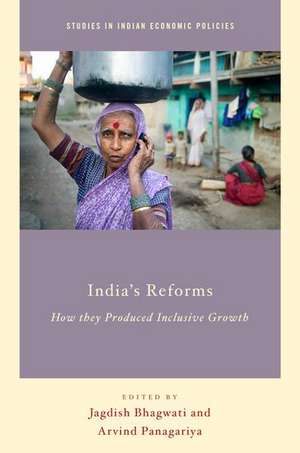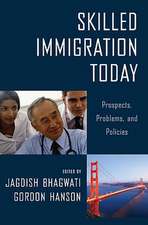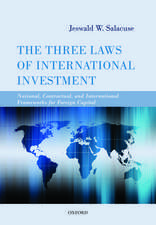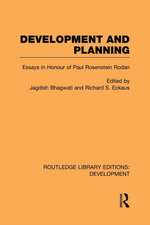India's Reforms: How they Produced Inclusive Growth: Studies in Indian Economic Policies
Editat de Jagdish Bhagwati, Arvind Panagariyaen Limba Engleză Hardback – 31 mai 2012
Preț: 420.90 lei
Preț vechi: 579.48 lei
-27% Nou
Puncte Express: 631
Preț estimativ în valută:
80.54€ • 84.69$ • 66.55£
80.54€ • 84.69$ • 66.55£
Carte tipărită la comandă
Livrare economică 07-12 aprilie
Preluare comenzi: 021 569.72.76
Specificații
ISBN-13: 9780199915187
ISBN-10: 0199915180
Pagini: 312
Ilustrații: 35 illustrations
Dimensiuni: 236 x 163 x 20 mm
Greutate: 0.59 kg
Editura: Oxford University Press
Colecția OUP USA
Seria Studies in Indian Economic Policies
Locul publicării:New York, United States
ISBN-10: 0199915180
Pagini: 312
Ilustrații: 35 illustrations
Dimensiuni: 236 x 163 x 20 mm
Greutate: 0.59 kg
Editura: Oxford University Press
Colecția OUP USA
Seria Studies in Indian Economic Policies
Locul publicării:New York, United States
Recenzii
a major empirical contribution.
Notă biografică
Jagdish Bhagwati, University Professor at Columbia University and Senior Fellow in International Economics at the Council on Foreign Relations, is a prominent economist. He has made pioneering contributions to the study of development, globalization, international trade, foreign aid, and immigration. He also writes frequently for leading media worldwide. He has served in many advisory roles, including at the GATT as Economic Policy Adviser to Director General Arthur Dunkel and at the UN to Secretary General Kofi Annan on Globalization and on NEPAD Process in Africa. He works with many NGOs, including Human Rights Watch.Arvind Panagariya is Professor of Economics & Jagdish Bhagwati Professor of Indian Political Economy at Columbia University and a Non-resident Senior Fellow at the Brookings Institution. He has written and edited ten books.



























